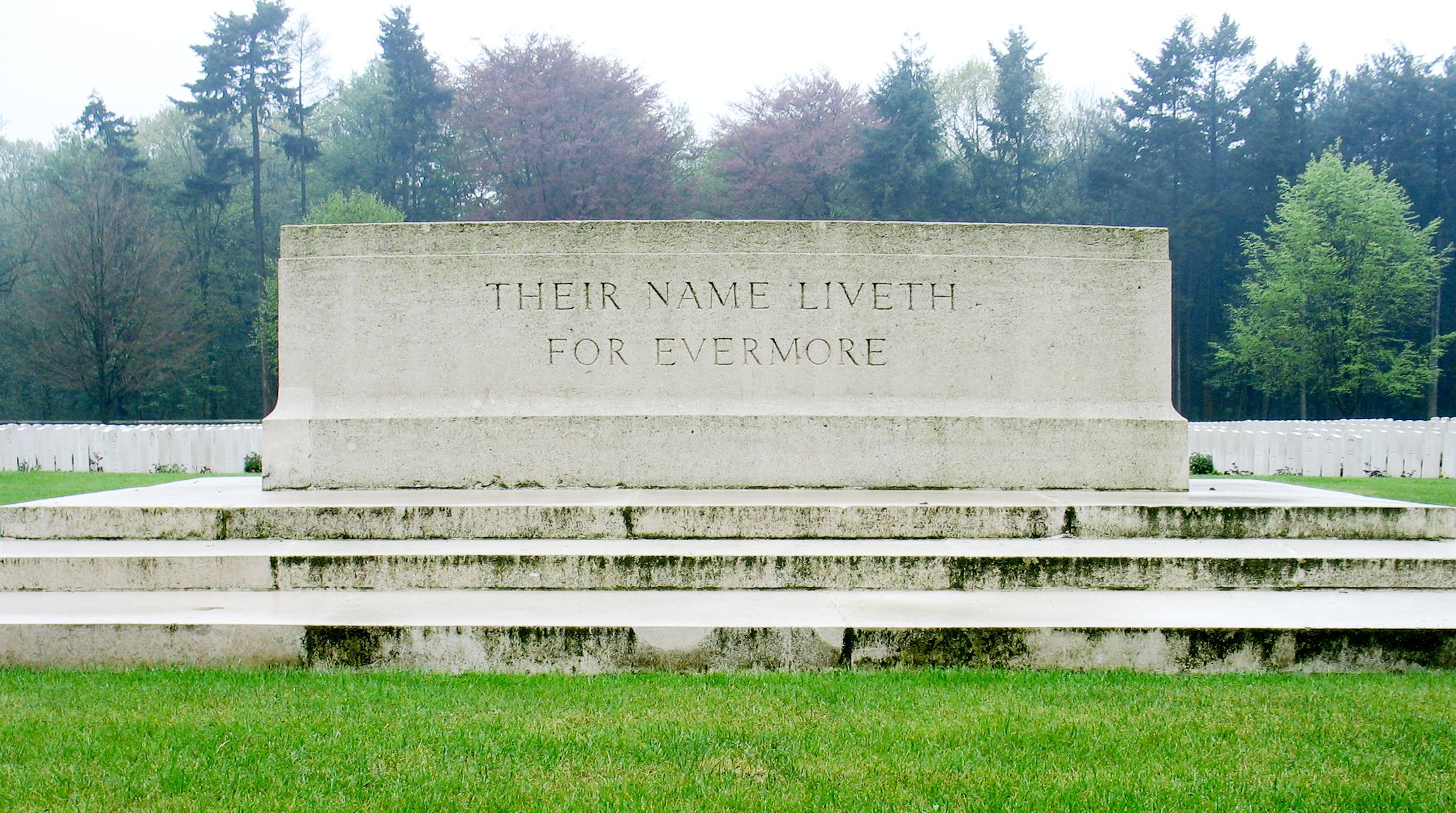Their Name Liveth For Evermore on:
[Wikipedia]
[Google]
[Amazon]
 "Their name liveth for evermore" is a phrase from the Jewish book of Ecclesiasticus or Sirach, chapter 44, verse 14, widely inscribed on
"Their name liveth for evermore" is a phrase from the Jewish book of Ecclesiasticus or Sirach, chapter 44, verse 14, widely inscribed on
His words liveth for evermore
The Guardian, 11 November 2007
Ecclesiasticus, chapter 44
King James Version
Acts, chapter 15
King James Version
Return to Gallipoli: Walking the Battlefields of the Great War
Bruce Scates, p.42-43
Commemorations: The Politics of National Identity
edited by John R. Gillis, p.153, 162
The Cambridge Companion to Rudyard Kipling
edited by Howard J. Booth, p.91
Making Sense of Dying and Death
edited by Andrew Fagan, p.17
The Anglican Planet, 15 November 2013 English phrases War poetry
 "Their name liveth for evermore" is a phrase from the Jewish book of Ecclesiasticus or Sirach, chapter 44, verse 14, widely inscribed on
"Their name liveth for evermore" is a phrase from the Jewish book of Ecclesiasticus or Sirach, chapter 44, verse 14, widely inscribed on war memorial
A war memorial is a building, monument, statue, or other edifice to celebrate a war or victory, or (predominating in modern times) to commemorate those who died or were injured in a war.
Symbolism
Historical usage
It has ...
s since the First World War
World War I or the First World War (28 July 1914 – 11 November 1918), also known as the Great War, was a World war, global conflict between two coalitions: the Allies of World War I, Allies (or Entente) and the Central Powers. Fighting to ...
.
In full, verse 14 reads "Their bodies are buried in peace; but their name liveth for evermore." The chapter begins with the line "Let us now praise famous men, and our fathers that begat us." The full text of verse 14 was suggested by Rudyard Kipling
Joseph Rudyard Kipling ( ; 30 December 1865 – 18 January 1936)''The Times'', (London) 18 January 1936, p. 12. was an English journalist, novelist, poet, and short-story writer. He was born in British Raj, British India, which inspired much ...
as an appropriate inscription for memorials after the First World War, with the intention that it could be carved into the Stone of Remembrance
The Stone of Remembrance is a standardised design for war memorials that was designed in 1917 by the British architect Sir Edwin Lutyens for the Imperial War Graves Commission (IWGC). It was designed to commemorate the dead of World War I, to b ...
proposed by Sir Edwin Lutyens
Sir Edwin Landseer Lutyens ( ; 29 March 1869 – 1 January 1944) was an English architect known for imaginatively adapting traditional architectural styles to the requirements of his era. He designed many English country houses, war memorials ...
for the Imperial (now Commonwealth) war cemeteries. Lutyens was initially opposed, concerned that someone might inappropriately add an "s" after "peace" ("peaces" being a homophone of "pieces"), but relented when the phrase was cut down to just the second part of the verse, omitting the reference to bodies resting in peace.
Kipling also suggested the memorial phrase " Known unto God" for gravestones marking the resting place of unidentified or unknown soldiers, possibly taken from Acts
The Acts of the Apostles (, ''Práxeis Apostólōn''; ) is the fifth book of the New Testament; it tells of the founding of the Christian Church and the spread of its message to the Roman Empire.
Acts and the Gospel of Luke make up a two-par ...
, chapter 15, verse 18—"Known unto God are all his works from the beginning of the world". The memorial phrase " lest we forget" is taken from Kipling's poem " Recessional"—"Lord God of Hosts, be with us yet / Lest we forget—lest we forget!"
Notes
{{ReflistReferences
His words liveth for evermore
The Guardian, 11 November 2007
Ecclesiasticus, chapter 44
King James Version
Acts, chapter 15
King James Version
Return to Gallipoli: Walking the Battlefields of the Great War
Bruce Scates, p.42-43
Commemorations: The Politics of National Identity
edited by John R. Gillis, p.153, 162
The Cambridge Companion to Rudyard Kipling
edited by Howard J. Booth, p.91
Making Sense of Dying and Death
edited by Andrew Fagan, p.17
The Anglican Planet, 15 November 2013 English phrases War poetry